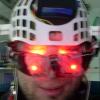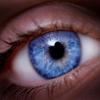i read 2 your post in blog and this
http://a-shade-of-gr...inicolumns.html (without discusion)
Interesting theory its may be one of factors.I loking at tlis like be a programs.
Autist sees the world as it really is with all of its complexity , and must adjust behavior acording to it.
A normal person sees the world what you want it, perception is distorted by filters and concept, rather chanhe the preciving of word than behavior.
The difference is in how they treat information with autist see unfiltered information and bad with creating a concepts .
Normal person its very goog with creating concept and see the world tought this concept.
Main problem is if you create the concept you and use it, In usage you see only the concepet but not data from its constructed.
Its like you look at the face and see face but abutist see nose,lips,pores,all parts (level depends on how concept cerating ablity).Its like see a PC code and dout know the langaue ,him see it all but dount knouw what meens.
Dyslexy extrem case where is more concept my brain work more efectivly

(half true half joke)
I read a word right even if the ltters is in absolutly wrong order i can only see the word concept, but no data withs it forms. So I see this word without error even though there is an error(my brain filter it and show me only the concept). We have to put a lot of attention and read slowly to acces unfiltered data. This is a dark side of concepts ,programs is good save amny resources and do hard work,but if have bad program you in big trouble.
Theories about the anatomical predisposition is not complete (or can be altered by neuroplasticity ) because when i increase level of consciousness (tDCS ,mental techniqes) i be able get to/work with these unfiltered data and many other things like turn off the concepts or rewrite them.
my brain needed large software update

some of emotion ,stress programs is ment for stone age not for modern society
















































